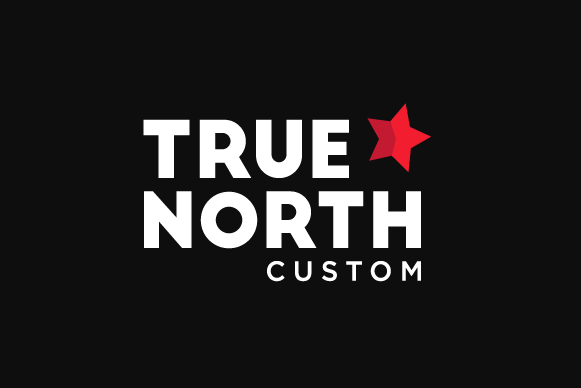
Access care offers patients a strategic entry point to your healthcare facility, whether through an urgent care clinic, an ER visit, a telehealth appointment or an appointment with one of your primary care providers. Those experiences can evolve from single-point interactions to long-term customer acquisitions, as patients are referred to specialists, therapists, or other providers and services at your facility. As a result, a successful access care campaign can do more for you than merely drive appointments. It can build relationships—and revenue—that last a lifetime.
Like any good campaign, effective access care marketing begins with understanding the needs of your target audience. Those needs vary based on where your potential patients are in their healthcare journey.
Let’s start from the bottom and work our way up.
At the bottom of the funnel are consumers who are ready to act. These patients have a pressing medical need—an illness or injury that requires urgent care or a condition they want to discuss with a primary care provider. To win these consumers, you want your services to be visible in as many places as possible. Patients don’t necessarily see the distinction between urgent, emergency and primary care. They just know, “I need help.” To get them the help they need, as the saying goes, you must be present to win.
Optimize your Google Business listing so it accurately lists your phone number, location, hours of operation and other important details. Run paid search ads that target high-intent search terms, such as “urgent care near me” and “primary care doctors,” with the latter focusing on providers accepting new patients to minimize frustration with scheduling. In your ads, focus on key differentiators, for example, same-day appointments, online scheduling, telehealth services and unique services like orthopedic urgent care facilities. Be sure to use address links, site extensions and call extensions to make information easy to find.
Bottom-of-funnel consumers are ready to convert, and by showing up in as many places as possible, you can greatly raise the likelihood of winning these consumers. Even if a consumer has a particular location or provider in mind, they are still “shopping” as they search. They are likely to pick the brand or doctor that is the easiest or most convenient solution to their problem. That’s why it’s important for consumers to easily find the answers to essential questions, such as:
Reaching consumers in the middle of the funnel is about helping them understand what you can provide as it applies to their needs. These consumers may have an idea of what they need, but they’re still in the research phase, giving you an opportunity to let them know what your organization can offer when they do need care.
At this stage, provide pertinent educational content online about your services and key differentiators. Explain the differences between the emergency room, urgent care and primary care, and create topical, SEO-driven blogs that will instill trust in your brand.
You can also target mid-funnel consumers with social media marketing. One effective way to reach new consumers who don’t already follow you is to use paid ads to drive them to your blogs or other downloadable assets. Rather than asking the consumer to call or make an appointment, your ad points them to engaging content. If possible, find ways to capture their email address so you can continue nurturing them with regular emails. These consistent touches allow you to keep your brand front and center, so it becomes the first choice when your potential patients are ready to act.
When developing your ads and content, remember to plan for seasonally appropriate ads, emails and blog posts. Example topics include:
Whichever topics you choose, remember that the core of your strategy is making sure the content you're putting together is not just being consumed by the people who are already aware of you, but that you’re using those stories to reach new people.
It’s not enough to provide digital tools for your potential patients. You need to consider how you market and present those tools to consumers and make it as easy as possible for them to select you.
We worked with an imaging center that was looking to improve conversion rates for their online mammogram self-scheduler. Although the tool made online scheduling easy and seamless, their campaign had a very low 7.75% conversion rate with an $85 cost per lead.
We created a dedicated landing page that linked to the self-scheduler and a phone number patients could call if they preferred scheduling over the phone. Although it would seem that we were adding another step for patients, the page offered more context around the importance of mammograms and when they’re necessary. Making these key adjustments, we increased the conversion rate to 32.5% and cut their cost per lead to just $14.
Imaging and primary care are different service lines, but the learnings apply no matter which service you need to promote: You want to make health care as easily accessible to patients as possible and help your patients understand how you can serve them.
At the top of the funnel, the main goal is to make consumers aware of your brand and generate interest in your services. For healthcare companies, one of the biggest considerations at this stage is often driving the narrative to build a positive perception of your brand.
According to a recent survey conducted by Jarrard, only 52% of people strongly believe their hospital of choice is a good community partner. Negative stories about health care in the media are a driving force behind this perception problem. So what can you do about this?
The key here is to tell your own story and amplify your own messaging, instead of relying on other organizations to do that. People who see a positive story about a hospital or system where they receive care are less likely to report a loss in trust in that brand by a significant factor, so become a teller of positive stories. Here are just a few of the platforms you may have at your disposal at your organizations:
You have a chance to contribute positively to the conversation. You never know who is reading or when you’ll have the chance to make an impact on someone through the power of storytelling.
No matter which consumers you are striving to reach with your access campaigns, it’s essential to remember one key point: the landscape is constantly changing, and what works best today may not work best tomorrow.
While it’s important to give your strategies enough time to take hold and bring results, it’s equally important to measure the effectiveness of your campaigns regularly—and pivot when necessary. This doesn’t mean abandoning a strategy because its effectiveness isn’t immediately apparent, but instead finding a balance between giving your campaign time to succeed and knowing when it’s time to try a new approach.
 Rod Thomas
Rod Thomas
Regional Vice President
True North Custom
The original version of this page was published at: https://www.truenorthcustom.com/blog/successful-access-care-marketing-campaigns
True North is your expert healthcare marketing agency, offering full-service, HIPAA-compliant marketing solutions.
When you hear “content marketing,” you may think about writing a few blogs or being more thoughtful about what and how often you post on social media. However, an effective ...read more
The demands on healthcare marketers have never been greater: differentiate the brand in an increasingly competitive market and guide consumers on their healthcare journey—all ...read more
Learn how digital marketing experts at three different types of health systems are shifting social media strategies in response to COVID-19.We recently hosted a roundtable discussion ...read more
With the growth of voice search and increasingly short attention spans, zero-click searches are here to stay. Here's how we're helping healthcare marketers use Google featured ...read more